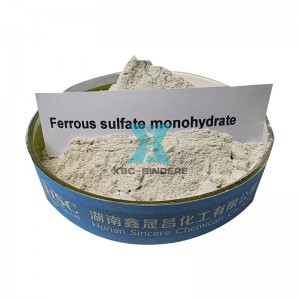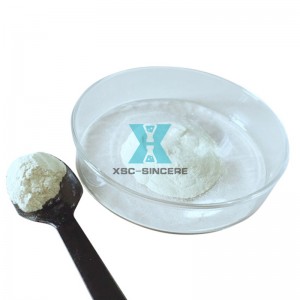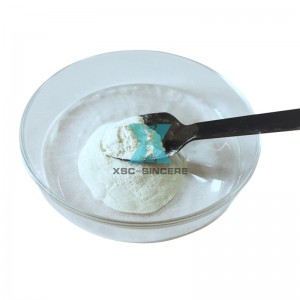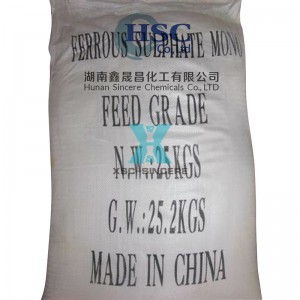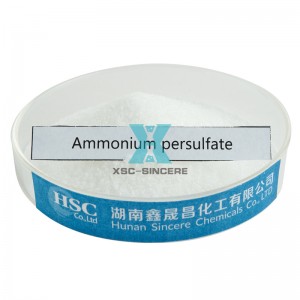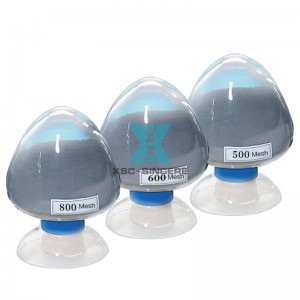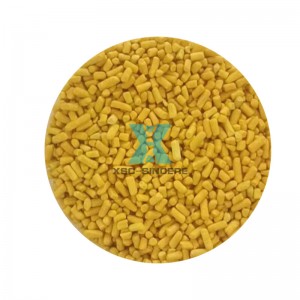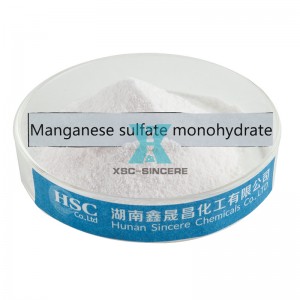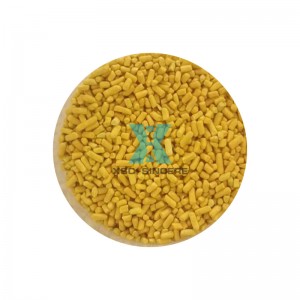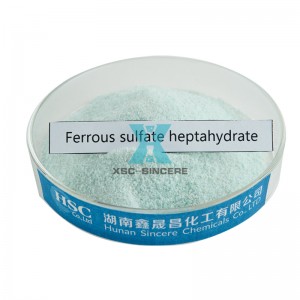
Products
Ferrous Sulphate Monohydrate FeSO4.H2O Feed Grade
Description
|
Specification
|
Item |
Standard |
|
Fe2SO4·H2O |
≥99% |
|
|
Fe |
≥30% |
|
|
Cd |
≤0.0015% |
|
|
As |
≤0.001% |
|
|
Pb |
≤0.0015% |
|
|
Packaging |
In the woven bag lined with plastic, net wt.25kgs or 1000kgs bags. |
|
Applications
Used for making iron salt, iron oxide pigment, mordant, water purifying agent, antiseptic, disinfectant, etc;
In medicine, it is used as anti anemia medicine, local astringent and blood tonic, which can be used for chronic blood loss caused by uterine leiomyoma; Analytical reagents and raw materials for ferrite production;
Iron fortifier as feed additive;
In agriculture, it can be used as a pesticide to control wheat smut, apple and pear scab, and fruit rot; Edible grade is used as nutritional supplement, such as iron fortifier, fruit and vegetable coloring agent.
It can also be used as fertilizer to remove moss and lichens from tree trunks. It is a raw material for manufacturing magnetic iron oxide, iron oxide red and iron blue inorganic pigments, iron catalysts and polyferric sulfates.
In addition, it is also used as a chromatographic analysis reagent.
Packaging And Storage
In summer, the shelf life is 30 days, the price is cheap; the decoloration effect is good; the flocculent alum is large, and the sedimentation is fast The outer packages are: 50kg and 25kg woven bags; ferrous sulfate is widely used in the treatment of bleaching and dyeing and electroplating wastewater. It is a high-efficiency water purification flocculant, especially used in the bleaching and dyeing wastewater treatment, with better effect; It can be used as raw material of ferrous sulfate monohydrate, which is widely used in feed industry; It is the main raw material of polymerized ferric sulfate, a high-efficient flocculant for electroplating wastewater.
Operating precautions: closed operation and local exhaust. Prevent dust from being released into the workshop air. Operators must receive special training and strictly abide by operating procedures. It is recommended that operators wear self-priming filter-type dust masks, chemical safety glasses, rubber acid and alkali-resistant clothes, and rubber acid and alkali-resistant gloves. Avoid dust generation. Avoid contact with oxidants and alkali. Provide leakage emergency treatment equipment. The emptied container may contain harmful substances.


-

Phone
-

E-mail
-

Whatsapp
-

WeChat
WeChat
18807384916


